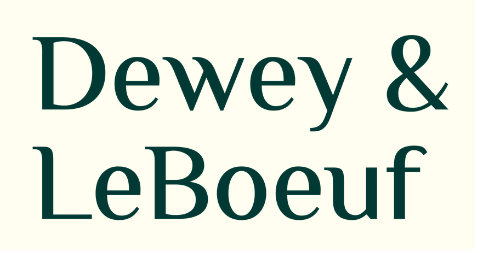Dewey Leboeuf, as a leading law firm in Bangladesh, stands at the forefront of legal intricacies surrounding the evolving landscape of capital market derivatives in the country. This article delves into the nuances of derivatives, their current status in Bangladesh, and the strategic considerations highlighted in the Bangladesh Capital Market Development Master Plan 2012-2022.
I. Understanding Derivatives: A Brief Overview
A. Derivatives Defined
Derivatives, in the financial realm, are contracts between two or more parties, and their value is derived from an agreed-upon underlying financial asset or set of assets. The underlying instruments can vary widely and may include bonds, commodities, currencies, interest rates, market indexes, and stocks. Essentially, derivatives act as risk management tools, enabling parties to hedge against market fluctuations and manage exposure to various financial instruments [Source: Investopedia].
II. The Current State of Derivatives Market in Bangladesh
A. Nascent Stage of Development
As of now, the derivatives market in Bangladesh is in its early stages of development. The country has witnessed its initial foray into derivatives with the conclusion of the very first derivative future contract. This contract primarily focused on managing exchange-rate risk between the Taka and the Dollar.
B. Absence of True Derivative Products
Despite these initial steps, Bangladesh is yet to experience a comprehensive array of true derivative products. The market is still evolving, and the introduction of derivatives is a meticulous process that requires a strategic approach to ensure stability and prevent any destabilizing effects on the financial markets.
III. Bangladesh Capital Market Development Master Plan 2012-2022
A. Recognizing the Potential of Derivatives
The Securities and Exchange Commission of Bangladesh, in its Capital Market Development Master Plan 2012-2022, acknowledges the potential benefits of derivatives in improving the functioning of the price discovery mechanism. Furthermore, derivatives are seen as valuable tools for providing hedging and risk management solutions to both financial and non-financial firms.
B. Gradual Introduction for Market Stability
The Master Plan emphasizes the importance of introducing derivatives gradually, aligning their introduction with the maturity of underlying cash markets. This cautious approach is designed to prevent destabilization of the markets. The document outlines key issues that need to be addressed before the widespread introduction of derivatives in Bangladesh.
IV. Key Issues in Introducing Derivatives
A. Legal Framework and Regulatory Structure
One of the primary considerations highlighted in the Master Plan is the need for a robust legal framework and regulatory structure governing derivatives markets. Establishing clear guidelines and regulations is crucial to ensure the smooth functioning of the derivatives market and protect the interests of market participants.
B. Types of Derivatives Suitable for Bangladesh
The Master Plan emphasizes the importance of identifying the types of derivatives that are likely to be successful in the Bangladeshi market. Tailoring derivative products to the specific needs and characteristics of the market is essential for their acceptance and effectiveness.
C. Conditions for Introduction
Introducing derivatives comes with its set of conditions. The Master Plan suggests that their introduction should be advisable only when the underlying cash markets have achieved a certain degree of maturity. This ensures that derivatives contribute positively to market dynamics without causing disruptions.
D. Preparing for Derivative Introduction
As part of the strategic approach, the Master Plan highlights the need for proactive actions to prepare for the introduction of derivatives. This involves capacity building, education, and awareness initiatives to equip market participants with the necessary knowledge and skills to engage with derivatives effectively.

V. Dewey Leboeuf’s Role in Shaping the Derivatives Landscape
A. Legal Expertise and Advisory
Dewey Leboeuf, with its profound legal expertise, plays a pivotal role in shaping the derivatives landscape in Bangladesh. The firm’s advisory services encompass navigating the legal intricacies surrounding derivatives, ensuring compliance with regulatory frameworks, and offering strategic counsel to market participants.
B. Risk Mitigation and Hedging Strategies
Derivatives inherently involve risk mitigation and hedging strategies. Dewey Leboeuf, through its legal counsel, assists clients in devising robust risk management frameworks, aligning derivatives usage with broader business strategies, and ensuring compliance with evolving regulatory requirements.
C. Supporting Regulatory Compliance
The law firm actively supports clients in understanding and adhering to the evolving legal and regulatory landscape concerning derivatives. This includes staying abreast of regulatory changes, providing timely updates to clients, and guiding them through the compliance process.

In conclusion, the journey of derivatives in Bangladesh is still in its early stages, with the country poised to witness further developments in the coming years. Dewey Leboeuf, with its commitment to legal excellence, stands as a key player in navigating the complexities of derivative transactions. The cautious and strategic approach outlined in the Bangladesh Capital Market Development Master Plan 2012-2022 provides a roadmap for the gradual and sustainable introduction of derivatives, ensuring their positive impact on the financial landscape of Bangladesh. As the derivatives market evolves, Dewey Leboeuf remains at the forefront, guiding clients through this transformative journey and contributing to the growth and stability of the capital market in Bangladesh.
E-mail: info@deweyleboeuf.com
Phone: +971 58 690 9684
Address: Office M 1003, Al Shmookh Business Center, UAQ FTZ, Umm Al Quwain, UAE
